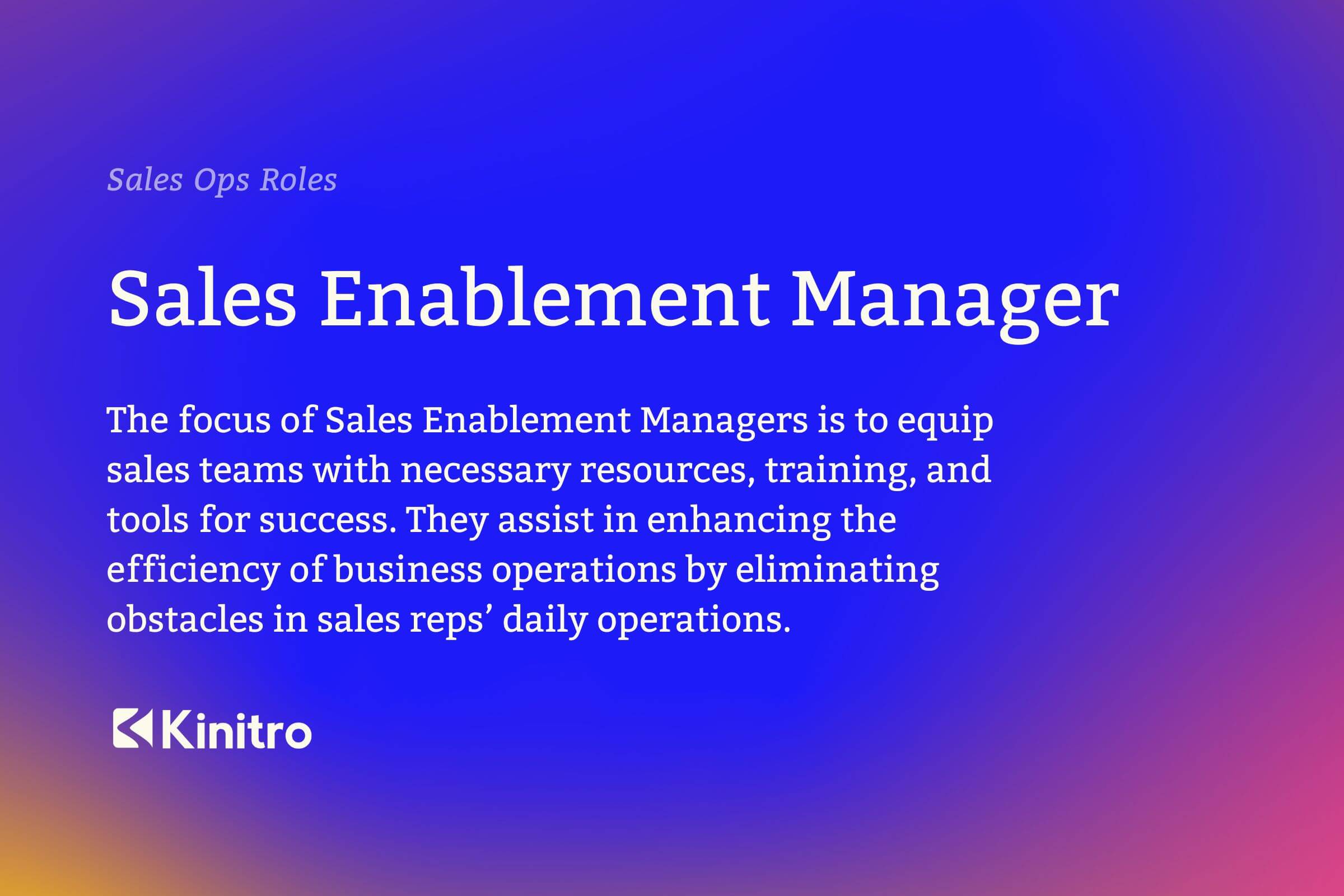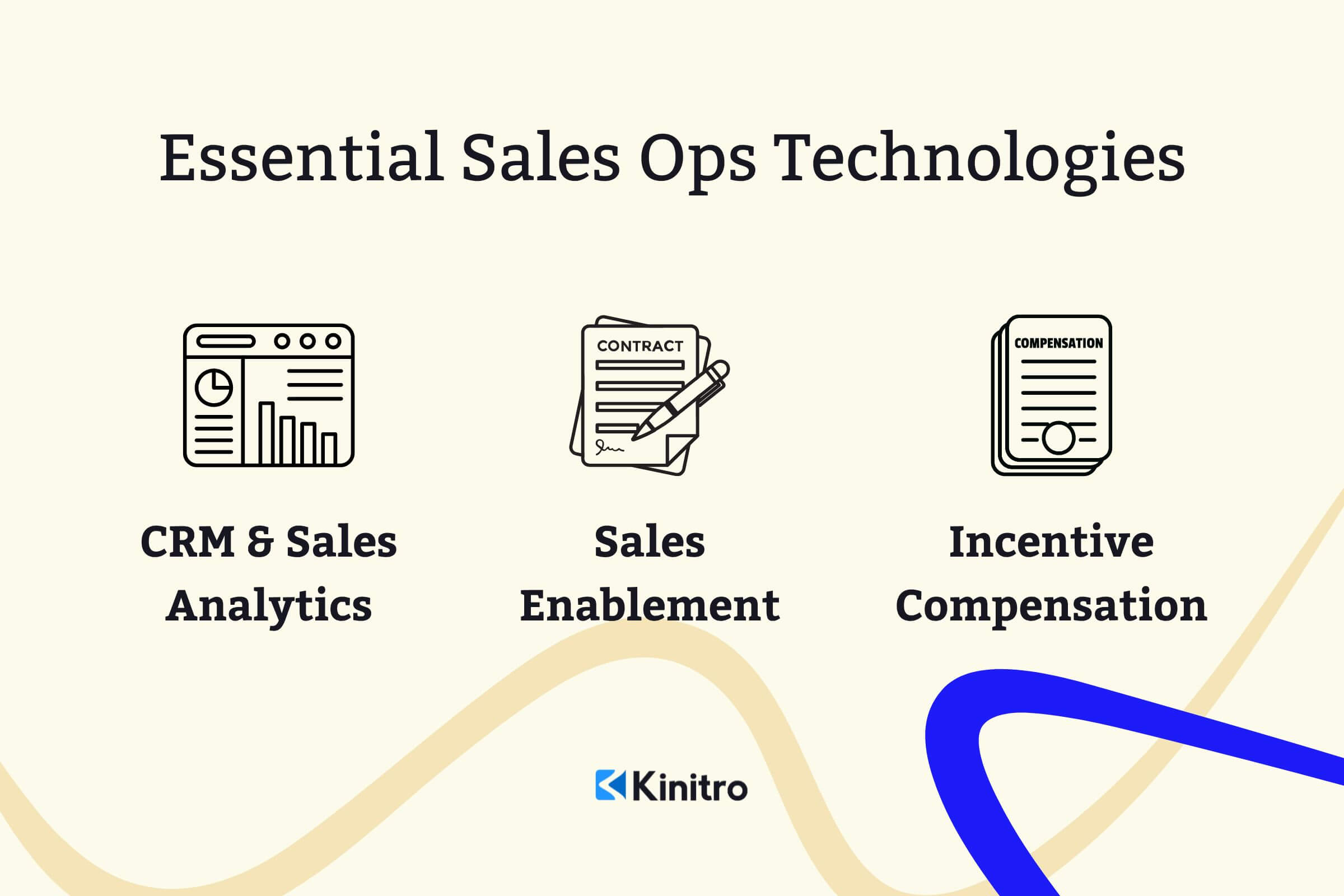In the competitive world of sales, a high-performing sales operations team is crucial for driving efficiency and productivity.
This comprehensive guide will not only help you understand the importance of sales ops roles but also reveal how these professionals support sales teams, streamline processes, and collaborate with other departments to ensure overall business success.
Let’s embark on this insightful journey to maximize sales efficiency!
Key Takeaways
-
Sales operations teams are essential for driving organizational success and optimizing sales performance.
-
Key roles in sales ops include Sales Operations Manager, Sales Analyst, and Sales Enablement Manager.
-
Successful sales ops teams require the right talent, clear objectives & KPIs, and a collaborative environment utilizing CRM systems, analytics platforms & enablement solutions to measure progress.
The Importance of Sales Ops Roles
Sales operations play a pivotal role in an organization’s success by supporting sales teams and optimizing processes to increase efficiency and productivity.
Sales ops teams drive strategy, performance, and sustainable growth in the organization by leveraging data, insight and technology. This helps to ensure long-term success and greater business growth.
From data analysis and lead management to hiring and training, sales operations cover a wide range of responsibilities that contribute to the success of every sales organization.
But how do sales ops teams enhance the performance of sales teams? They play vital roles in supporting sales teams and streamlining processes.
Supporting Sales Teams
Sales ops teams provide essential support to frontline sales teams, freeing them up to focus on closing deals and generating revenue.
By taking on administrative tasks like lead generation and appointment bookings, sales ops teams enable sales reps to concentrate on what they do best – selling. They also help sales reps by providing them with the necessary resources, tools, and training to succeed in their roles.
Shadowing salespeople allows sales ops team members to understand the common challenges in sales, strengthening the connection between the two departments.
Streamlining Processes
Sales ops teams are experts in:
-
Identifying and implementing process improvements to maximize sales performance and minimize friction in the sales cycle
-
Assessing and authorizing the technology utilized by sales representatives
-
Evaluating sales tools
-
Defining sales territories
Sales ops teams can optimize various aspects of the sales cycle, automate repetitive tasks, improve customer satisfaction, and increase sales revenue through data analysis.
Key Sales Ops Roles and Responsibilities
Sales operations encompass various sales operations roles, each with specific responsibilities to enhance sales performance.
Key roles within sales ops include Sales Operations Manager, Sales Analyst, and Sales Enablement Manager. These professionals work together to manage sales planning, compensation, and forecasting while providing sales reps with the resources they need to succeed.
We will further examine each of these roles and their specific responsibilities in driving sales success.
Sales Operations Manager
A Sales Operations Manager oversees the sales ops team, ensuring alignment with sales goals and providing strategic direction. They play a crucial role in:
-
Managing the sales team’s compensation and incentive plans
-
Rewarding exceptional performance
-
Establishing processes for addressing and resolving sub-par performance.
A successful Sales Operations Manager possesses strong leadership qualities, knowledge of sales operations, and an understanding of sales methodologies.

Sales Operations Analyst
Sales Analysts aid the sales operations process by examining data to pinpoint trends, opportunities, and areas for enhancement in the sales process. With skills in data modeling, data mining, and data quality management, Sales Operations Analysts collaborate with various teams, including product, marketing, analytics, and engineering, to drive sales success.
Their role is fundamental in observing sales performance and offering insights for decision-making based on data.

Sales Enablement Manager
The focus of Sales Enablement Managers is to equip sales teams with necessary resources, training, and tools for success. They assist in enhancing the efficiency of business operations by analyzing data, making informed decisions, and eliminating obstacles in sales reps’ daily operations.
Sales Enablement Managers play an integral role in ensuring that sales enablement teams have the appropriate understanding and capabilities to engage with buyers proficiently.

The Relationship Between Sales Ops and Other Departments
Sales ops teams not only work closely with sales teams but also collaborate with various departments, such as marketing, finance, and customer success, to ensure alignment and drive overall business success.
This cross-functional collaboration is essential in organizing the sales and operations functions, guaranteeing that the objectives of the business are completely harmonized across all divisions of the organization, including the sales operations department.
We will discuss how sales ops teams collaborate with these various departments to maximize success.
Aligning with Marketing
Sales ops work closely with marketing to ensure consistent messaging and lead generation strategies. By collaborating on:
-
customer data and research
-
technical tools
-
planning
-
sales processes
The sales operations team, and marketing teams drive sales, revenue, and the overall business. In this context, sales operations teams play a crucial role in aligning with marketing teams for conveying a consistent message to customers and prospects, which leads to increased sales success.
Collaborating with Finance
Sales ops team up with finance to construct sales forecasts, budgets, and compensation plans. By working together on these critical aspects of sales strategy, sales ops and finance teams can ensure financial feasibility and alignment with business objectives.
This collaboration also helps sales ops teams to make more informed decisions, optimize resources, and drive financial performance.
Partnering with Customer Success
Sales ops work together with customer success teams to:
-
Create a seamless customer experience
-
Enhance customer retention
-
Share insights into customer needs and pain points
-
Streamline processes
-
Leverage technology
-
Drive value and customer satisfaction
This partnership is essential for maintaining strong customer relationships and ensuring that all stakeholders are working towards the same objectives.
Building a Successful Sales Ops Team
A successful sales operations team requires hiring the right talent, establishing clear goals and objectives, and fostering a collaborative environment. Attracting and retaining skilled sales ops professionals is crucial for building a high-performing team that can drive sales efficiency and productivity.
We will examine these key components in detail and their contribution to building a successful sales ops team.
Hiring the Right Talent
Attracting and retaining skilled sales operations professionals is crucial for building a high-performing team. When hiring for sales operations roles, it is essential to select individuals who meet all competencies or multiple individuals who meet several of them. This includes:
-
Tech proficiency
-
Organizational and detail-oriented capabilities
-
Familiarity with lead generation, sales forecasting, pipeline management, and CRM data analysis.
Establishing Clear Goals and Objectives
Sales operations teams need to have well-defined goals and objectives to guide their efforts and measure success. Setting clear targets and observing key performance indicators (KPIs) like sales productivity, sales cycle length, and forecast accuracy enable sales ops teams to monitor their progress, make required adjustments, and propel continuous improvement.
Fostering a Collaborative Environment
Encouraging collaboration and open communication within the sales ops team and across departments is essential for driving success. Creating an atmosphere that fosters teamwork, trust, and respect ensures that sales ops teams work together effectively towards shared goals and objectives.
Essential Sales Operations Tools and Technologies
Sales ops teams rely on various tools and technologies to optimize sales performance. Some commonly employed tools and technologies include:
-
CRM systems: Used to manage customer relationships and track leads
-
Sales analytics platforms: Used to monitor sales activities and analyze sales data
-
Sales enablement solutions: Used to provide sales teams with the resources and tools they need to sell effectively
- Incentive compensation software: Used by sales operations teams to design and manage compensation plans, reward exceptional performance, and align incentives with sales goals.
These tools and technologies play a crucial role in driving sales efficiency and productivity.
We will examine each of these essential sales operations tools and technologies in more detail.
CRM Systems
CRM systems help manage customer relationships, track leads, and monitor sales activities. These systems provide a centralized platform for storing and organizing customer data, ensuring that sales reps have access to the information they need to make informed decisions and close deals more effectively.
CRM systems significantly enhance sales productivity and contribute to sales success.
Sales Analytics Platforms
Sales analytics platforms offer insights into sales performance and assist sales ops teams in identifying areas for improvement and making decisions based on data. By analyzing sales data, these platforms can:
-
Generate actionable insights
-
Set targets
-
Forecast future sales performance
-
Enhance sales strategies
Sales analytics platforms have a significant role in enhancing sales performance and contributing to success.
Sales Enablement Solutions
Sales enablement tools aid sales teams by providing training, content, and resources to enhance their selling capabilities. These solutions align people, processes, and priorities to deliver effective training, coaching, and content, ensuring that sales reps have the tools and resources they need to succeed.
Sales enablement solutions play an integral role in driving sales success and enhancing overall business performance.
Incentive compensation software
Incentive compensation software plays a vital role in driving sales success by enabling sales operations teams to design and manage compensation plans effectively. This software helps in rewarding exceptional performance, aligning incentives with sales goals, and motivating sales reps to achieve their targets.
By utilizing incentive compensation software, sales teams can ensure that their compensation plans are fair, transparent, and closely tied to individual and team performance. This not only boosts morale and motivation within the sales team but also enhances overall sales productivity and efficiency.
With the right incentive compensation software in place, sales operations teams can effectively drive sales success and contribute to the growth of the business.

Measuring Sales Operations Success: Key Metrics and KPIs
To measure their success and drive continuous improvement, sales ops teams track various metrics and KPIs, such as sales productivity, sales cycle length, and forecast accuracy. These metrics provide valuable insights into the efficiency and effectiveness of the sales team, helping sales ops teams identify areas for improvement and optimize processes.
Sales Productivity
Sales productivity gives a measure of the sales team’s efficiency and assists sales ops teams in identifying areas for improvement and streamlining processes. By monitoring sales productivity metrics, such as revenue generated, conversion rate, and activity metrics like calls made and emails sent, sales ops teams can gain valuable insights into the performance of their sales reps and make necessary adjustments to drive sales success.
Sales Cycle Length
Tracking the length of the sales cycle helps sales ops teams identify bottlenecks and streamline the sales process. Analyzing sales cycle data allows sales ops teams to:
-
Identify stages or processes in the sales pipeline causing delays or hindering progress
-
Take targeted actions to address these bottlenecks
-
Optimize the sales cycle length
Forecast Accuracy
Monitoring forecast accuracy enables sales ops teams to:
-
Refine their forecasting methods
-
Make more informed decisions
-
Track the difference between forecasted and actual sales
-
Identify areas for improvement
-
Adjust their forecasting methods
Summary
In summary, sales operations play a critical role in driving sales efficiency and productivity by supporting sales teams, streamlining processes, and collaborating with other departments.
Building a successful sales ops team requires hiring the right talent, establishing clear goals and objectives, and fostering a collaborative environment.
Utilizing essential sales operations tools and technologies, such as CRM systems, incentive compensation software, and sales enablement solutions, can further optimize sales performance.
By measuring key metrics and KPIs, sales ops teams can continuously improve their processes and drive overall business success.
Frequently Asked Questions
What are the 5 elements of sales operations?
The 5 Elements of Sales Operations include prospecting, qualification, presenting, closing, and servicing customers. All of these tasks must be successfully completed in order for an organization to effectively generate sales.
What does a sales operations department do?
The sales operations department plays a crucial role in driving sales efficiency and productivity within an organization. Collaborating closely with finance, sales ops teams help construct sales forecasts, budgets, and compensation plans to ensure financial feasibility and alignment with business objectives. Partnering with customer success teams, sales ops work towards creating a seamless customer experience, enhancing customer retention, and sharing insights into customer needs and pain points.
How do you structure a sales ops team?
The best way to structure a sales ops team is by dividing it into four main components: technology and equipment, planning and strategy, operations, and performance. This ensures that all areas are well-equipped with the necessary resources to succeed.
What are the areas of sales operations?
Sales operations typically encompass four key areas – strategy, technology, operations, and performance – with roles such as data analysis, forecasting, hiring and training, territory design, and sales process optimization.
How do sales ops teams collaborate with other departments?
Sales ops teams collaborate with departments like marketing, finance and customer success to ensure alignment and drive business success.







